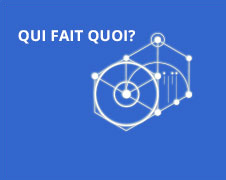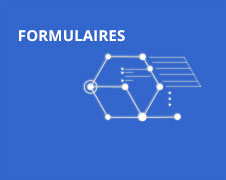Geneviève Mageau
Pratiques parentales; intériorisations des valeurs; projet Nos Enfants
- Professeure titulaire
-
Faculté des arts et des sciences - Département de psychologie
Marie-Victorin, local F309-6
Médias
Geneviève Mageau
Université de Montréal
Projet Nos Enfants
Portrait
Expertise de recherche
Mes recherches actuelles portent sur la définition, les déterminants et les conséquences du soutien à l'autonomie (Grolnick & Ryan, 1989; Mageau & Vallerand, 2003) dans les relations hiérarchiques et, plus particulièrement, dans les relations parent-enfant.
- Le soutien à l’autonomie réfère au fait qu'une personne en position d'autorité (p.ex., un parent) considère l'autre (p.ex., l'enfant) comme une personne à part entière avec des besoins et des sentiments uniques et ayant droit au respect et à l'autodétermination (Deci & Ryan, 1985, 2000).
- Le soutien à l'autonomie est souvent opérationnalisé à l'aide des comportements suivants: (1) reconnaître les sentiments de l'autre, (2) expliquer les raisons derrière les demandes et les règlements et (3) offrir des opportunités de choix et de prise d'initiatives (Grolnick, Frodi, & Bridges, 1984; Koestner, Ryan, Bernieri, & Holt, 1984).
Je m'intéresse aussi aux autres dimensions interpersonnelles clés (c'est-à-dire l'affiliation et l'encadrement) et à la façon dont elles se combinent au soutien à l'autonomie afin de faciliter le fonctionnement optimal.
Finalement, je suis co-directrice du projet de recherche Nos Enfants, dont le but est d'évaluer les effets de l'atelier pour parents "How to talk so kids will listen & how to listen so kids will talk". Cet atelier enseigne aux parents comment offrir un encadrement clair et constant aux enfants, tout en soutenant leur autonomie et en maintenant une relation chaleureuse avec eux.
Formation
- 2004 — Post-doctorat — Psychologie — Université McGill
- 2003 — Doctorat — Psychologie — Université du Québec à Montréal
- 1998 — Baccalauréat — Psychologie — Université d'Ottawa
Affiliations et responsabilités
Affiliations de recherche
Enseignement et encadrement
Enseignement
Cours siglés (session en cours uniquement)
Programmes
- 219460 – Microprogramme de 2e cycle en statistiques sociales
- 222013 – Maîtrise en psychologie
- 275011 – Maîtrise en sciences de l'orthophonie et de l'audiologie
- 322010 – Doctorat en psychologie - Recherche (Ph. D.)
- 322013 – Doctorat en psychologie, option Psychologie clinique (D. Psy.)
- 322014 – Doctorat en psychologie, option Neuropsychologie clinique (D. Psy.)
- 322015 – Doctorat en psychologie - Recherche et intervention, option Neuropsychologie clinique (Ph. D. R-I)
- 322016 – Doctorat en psychologie - Recherche et intervention, option Psychologie clinique (Ph. D. R-I)
- 322017 – Doctorat en psychologie - Recherche et intervention, option psychologie du travail et des organisations (Ph. D. R-I)
- 322018 – Doctorat en psychologie, option Psychologie du travail et organisations (D. Psy.)
Encadrement
Thèses et mémoires dirigés (dépôt institutionnel Papyrus)
Promouvoir à la fois le bien-être et la performance des athlètes, est-ce possible? : le rôle du style interpersonnel des entraîneurs et des parents
Cycle : Doctorat
Diplôme obtenu : Ph. D.
Adversité socioéconomique et pratiques parentales : le rôle des stresseurs contextuels et des caractéristiques de l’enfant
Cycle : Doctorat
Diplôme obtenu : Ph. D.
Mieux relever le défi de la discipline à l’adolescence : le rôle des buts parentaux et de la rétroaction orientée vers le changement
Cycle : Doctorat
Diplôme obtenu : Ph. D.
Vers des réponses de colère maternelle constructives : exploration des relations entre quatre réponses de colère maternelle, la santé psychologique et l’internalisation des règles des enfants
Cycle : Doctorat
Diplôme obtenu : Ph. D.
Étude des types de compliments et leurs liens avec l’estime de soi et les processus motivationnels d’enfants de 8 à 12 ans
Cycle : Doctorat
Diplôme obtenu : Ph. D.
Quand et comment exercer son autorité comme parent : le rôle socialisateur du lien problème-contrainte et du domaine social
Cycle : Doctorat
Diplôme obtenu : Ph. D.
Régulation de l'intimité au sein des relations conjugales : vers des stratégies plus optimales
Cycle : Doctorat
Diplôme obtenu : Ph. D.
Prédire la déviance au travail : les rôles de l’autonomie et du leadership transformationnel
Cycle : Doctorat
Diplôme obtenu : Ph. D.
Vers une meilleure compréhension de la rétroaction orientée vers le changement : observation objective, variations quotidiennes et déterminants en contexte sportif
Cycle : Doctorat
Diplôme obtenu : Ph. D.
Les relations mères-enfants lorsqu'un enfant enfreint une règle : étude de l'impact des stratégies visant à renforcer les règles et du climat interpersonnel
Cycle : Doctorat
Diplôme obtenu : Ph. D.
Le soutien parental à l’autonomie et l’honnêteté : le rôle médiateur de l’intériorisation de la valeur de l’honnêteté et de l’analyse coûts/bénéfices
Cycle : Maîtrise
Diplôme obtenu : M. Sc.
Favoriser la santé psychologique des professionnels de la santé en début de carrière : l'importance du soutien à l'autonomie, de la concordance des tâches et de la conscience de soi
Cycle : Doctorat
Diplôme obtenu : Ph. D.
La rétroaction négative optimale en sport : étude de l’impact relatif de la quantité et de la qualité
Cycle : Maîtrise
Diplôme obtenu : M. Sc.
Toward a broader approach to the study of infant attachment : links between maternal autonomy-support, attachment state of mind, maternal sensitivity, and infant security of attachment
Cycle : Doctorat
Diplôme obtenu : Ph. D.
Projets
Projets de recherche
Improving vulnerable preschoolers’ mental health: A superiority trial assessing the How-to Parenting Program
Groupe de recherche sur l'inadaptation psychosociale chez l'enfant (GRIP). ( GRIPSYENF )
Parenting dimensions' influence on the psychosocial adaptation of preschoolers with language deficits
Régler ensemble le problème plutôt que de cibler la transgression: la clé d’une discipline plus saine et efficace
Promouvoir le développement socio-émotif des tout-petits: effets d'un atelier pour parents
COVID-19: Preserving young children's socio-emotional development and well-being by supporting parenting quality
Optimisation de l'adaptation lors de principales transitions de vie
Promoting children's mental health: the effects of a parenting program
OPTIMISATION DE L'ADAPTATION PSYCHOSOCIALE EN MILIEU CLINIQUE, FAMILIAL ET DE TRAVAIL
OPTIMISATION DE L'ADAPTATION PSYCHOSOCIALE EN MILIEU CLINIQUE, FAMILIAL ET DE TRAVAIL
IMMIGRATION : L'ADAPTATION DES GROUPES MAJORITAIRES FACE AUX POLITIQUES D'INTÉGRATION EN France ET AU QUÉBEC
ON THE DETERMINANTS OF PARENTAL AUTONOMY SUPPORT: THE ROLE OF PERCEIVED THREAT AND PARENTAL GOALS
Rayonnement
Publications et communications
Publications
Profil Google Scholar: scholar.google.ca/citations
Articles choisis revisés par les paires
- Robichaud, J.-M., Normandin, A.-L., & Mageau, G. A. (sous presse). The socializing role of the problem-constraint link: A multimethod investigation. Journal of Applied Developmental Psychology.
- Tessier, J., Joussemet, M., Kurdi, V., & Mageau, G. A. (sous presse). Adolescents “walking the talk”: How value importance and enactment relate to well-being and risk-taking. Motivation and Emotion.
- Andreadakis, E., Laurin, J. C., Joussemet, M., & Mageau, G. A. (2020). Toddlers’ temperament and autonomy-supportive socialization practices: The mediating role of parental stress. Journal of Child and Family Studies, 29, 3029-3043.
- Cimon-Paquet, C., Bernier, A., Matte-Gagné, C., & Mageau, G. A., (2020). Early maternal autonomy support and mathematical achievement trajectories during elementary school. Learning and Individual Differences, 79, 101855.
- Robichaud, J.-M., Bureau, F., Ranger, F., & Mageau, G. A. (2020). The Impact of Environmental Threats on Controlling Parenting and Children's Motivation. Journal of Family Psychology.
- Robichaud, J.-M., Mageau, G. A., Soenens, B. (2020). The role of logical consequences in adolescents’ cognitive precursors of compliance and internalization. Journal of Experimental Child Psychology, 192, 104777.
- Robichaud, J.-M., & Mageau, G. A. (2020). The socializing role of logical consequences, mild punishments and reasoning in rule-breaking contexts involving multifaceted issues. Social Development, 29, 356-372.
- Robichaud, J.-M., Lessard, J., Labelle, L., & Mageau, G. A. (2019). Anger and empathy as pathways to internalization: The role of logical consequences and autonomy support. Journal of Child and Family Studies.
- Andreadakis, E., Joussemet, M. & Mageau, G. A. (2019). How to support toddlers’ autonomy: Socialization practices reported by parents. Early Education and Development, 30, 297-314.
- Cárdenas, D., de la Sablonnière, R., Gorborukova, G., Mageau, G. A., Amiot, C., & Sadykova, N. (2019). Participation in a new cultural group and patterns of identification in a globalized world: The moderating role of similarity. Self and Identity, 18, 709-738.
- Robichaud, J.-M., Bureau, F., Ranger, F., & Mageau, G. A. (2018). The relation between children’s task-specific competence and mothers’ controlling practices. Social Development, 28, 120-135.
- Joussemet, M., Mageau, G. A., Larose, M.-P., Briand, M., & Vitaro, F. (2018). How to talk so kids will listen & listen so kids will talk: a randomized controlled trial evaluating the efficacy of the French How-to Parenting Program on children's mental health compared to a wait-list control group. BMC Pediatrics, 18, 257.
- Bureau, J. S., Mageau, G. A., Morin, A. J., Gagné, M., Forest, J., Papachristopoulos, K., Lucas, A., Thibault-Landry, A., Parenteau, C. (2018). Promoting identified motivation to reduce employee deviance: The importance of autonomy. International Journal of Business and Management, 13, 61-71.
- Mageau1, G. A., Lessard1, J., Carpentier, J., Robichaud, J.-M., Joussemet, M., & Koestner, R. (2018). Effectiveness and acceptability beliefs regarding logical consequences and mild punishments. Journal of Applied Developmental Psychology, 54, 12-22. 1Contributions égales.
- Bureau, J. S., Gagné, M., Morin, A. J. S., & Mageau, G. A. (2017). Transformational leadership and incivility: A multilevel and longitudinal test. Journal of Interpersonal Violence.
- Mageau, G. A., Sherman, A., Grusec, J. E., Koestner, R., & Bureau, J. S. (2017). Different ways of knowing a child and their relations to mother-reported autonomy support. Social Development, 26, 630-644.
- Mageau, G. A., Bureau, J. S., Ranger, F., Allen, M.-P., & Soenens, B. (2016). Parental achievement goals as determinants of autonomy-supportive and controlling parenting. Journal of Child and Family Studies, 25, 1702-1711.
- Carpentier, J., & Mageau, G. A. (2016). Predicting sport experience during training: The role of change-oriented feedback in athletes’ motivation, self-confidence and needs satisfaction fluctuations. Journal of Sport & Exercise Psychology, 38, 45-58.
- Jungert, T., Landry, R., Joussemet, M., Mageau, G. A., Gingras, I., & Koestner, R. (2015). Autonomous and controlled motivation for parenting: Associations with parent and child outcomes. Journal of Child and Family Studies, 24, 1932-1942.
- Mageau, G. A., Ranger, F., Joussemet, M., Koestner, R., Moreau, E., & Forest, J. (2015). Validation of the Perceived Parental Autonomy Support Scale (P-PASS). Canadian Journal of Behavioural Science, 47, 251-262.
- Soenens, B., Wuyts, D., Vansteenkiste, M., & Mageau, G. A., & Brenning, K. (2015). Raising trophy kids: The role of mothers’ contingent self-esteem in maternal promotion of extrinsic goals. Journal of Adolescence, 42, 40-49.
- Bureau, J. & Mageau, G. A. (2014). Parental autonomy support and honesty: The mediating role of identification with the honesty value and perceived costs and benefits of honesty. Journal of Adolescence, 37, 225-236.
- Carpentier, J., & Mageau, G. A. (2014). The role of coaches’ passion and athletes’ motivation in the prediction of change-oriented feedback quality and quantity. Psychology of Sport and Exercise, 15, 326-335.
- Joussemet, M., Mageau, G. A., & Koestner, R. (2014). Promoting optimal parenting and children's mental health: A preliminary evaluation of the How-to Parenting Program. Journal of Child and Family Studies, 23, 949-964.
- Taylor, G., Jungert, T., Mageau, G. A., Schattke, K., Dedic, H., Rosenfield, S., & Koestner, R. (2014). A self-determination theory approach to predicting school achievement over time: The unique role of intrinsic motivation. Contemporary Educational Psychology, 39, 342-358.
- Carpentier, J., & Mageau, G. A. (2013). When change-oriented feedback enhances motivation, well-being and performance : A look at autonomy-supportive feedback in sport. Psychology of Sport and Exercise, 14, 423-435.
- Moreau, E., & Mageau, G. A. (2013). Conséquences et corrélats associés au soutien à l'autonomie dans divers domaines de vie. Psychologie française, 58, 195-227.
- Savard, A., Joussemet, M., Pelletier, J. E., & Mageau, G. A. (2013). The benefits of autonomy support for adolescents with severe emotional and behavioral problems. Motivation and Emotion, 37, 688-700.
- Brien, M., Forest, J., Mageau, G. A., Boudrias, J.-S., Desrumeaux, P., Brunet, L., & Morin, E. M. (2012). The Basic Needs at Work Scale: Measurement invariance between Canada and France. Applied Psychology: Health and Well-Being, 4, 167-187.
- Bureau, J., Mageau, G. A., Vallerand, R. J., Rousseau, F. L., & Otis, J. (2012). Self-determination: A buffer against suicidal ideation. Suicide and Life-Threatening Behavior, 42, 377-393.
- Carpentier, J., Mageau, G. A., & Vallerand, R. J. (2012). Ruminations and flow: Why do people with a more harmonious passion experience higher well-being? Journal of Happiness Studies, 13, 501-518.
- Forest, J., Mageau, G. A., Crevier-Braud, L., Dubreuil, P., Bergeron, E., & Lavigne, G. L. (2012). Harmonious passion as an explanation of the relation between signature strengths’ use and well-being at work: Test of an intervention program. Human Relations, 65, 1233-1252.
- Moreau, E., & Mageau, G. A. (2012). The importance of perceived autonomy support for the psychological health and work satisfaction of health professionals: Not only supervisors count, colleagues too! Motivation and Emotion, 36, 268-286.
- Mageau, G. A., Carpentier, J., & Vallerand, R. J. (2011). The role of self-esteem contingencies in the distinction between obsessive and harmonious passion. European Journal of Social Psychology, 41, 720-729.
- Whipple, N., Bernier A., & Mageau, G. A. (2011). A dimensional approach to maternal attachment state of mind: Relations to maternal sensitivity and maternal autonomy-support. Developmental Psychology, 47, 396-403.
- Forest, J., Mageau, G. A., Sarrazin, C., & Morin, E. M. (2011). "Work is my passion”: The different affective, behavioral, and cognitive consequences of harmonious and obsessive passion towards work. Canadian Journal of Administrative Sciences, 28, 17-30.
- Whipple, N., Bernier A., & Mageau, G. A. (2011). Broadening the study of infant security of attachment: Maternal autonomy-support in the context of infant exploration. Social Development, 20, 17-32.
- Mageau, G. A., Vallerand, R. J., Charest, J., Salvy, S.-J., Lacaille, N., Bouffard, T. & Koestner, R., (2009). On the development of harmonious and obsessive passion: The role of autonomy support, activity valuation, and identity processes. Journal of Personality, 77, 601-645.
- Milyavskaya, M., Gingras, I., Mageau, G. A., Koestner, R., Gagnon, H., Fang, J., & Boiché, J. (2009). Balance across contexts: Importance of balanced need satisfaction across various life domains. Personality and Social Psychology Bulletin, 35, 1031-1045.
- Whipple, N., Bernier A., & Mageau, G. A. (2009). Attending to the exploration side of infant attachment: Contributions from self-determination theory. Canadian Psychology, 50, 219-229.
- Downie, M., Mageau, G. A., & Koestner, R. (2008). What makes for a pleasant social interaction? The motivational dynamics of interpersonal relations. Journal of Social Psychology, 148, 523-534.
- Landry, R., Whipple, N., Mageau, G. A., Joussemet, M., Koestner, R., Didio, L., Gingras, I., Bernier, A., & Haga, S. M. (2008). Trust in organismic development, autonomy support, and adaptation among mothers and their children: A self-determination theory approach to parenting. Motivation and Emotion, 32, 173-188.
- Vallerand, R. J., Mageau, G. A., Elliot, A. J., Dumais, A., Demers, M.-A., & Rousseau, F. (2008). Passion and performance attainment in sport. Psychology of Sport and Exercise, 9, 373-392.
- Mageau, G. A., & Vallerand, R. J. (2007). The moderating effect of obsessive passion on the relationship between activity engagement and positive affect. Motivation and Emotion, 31, 312-321.
- Vallerand, R. J., Salvy, S.-J., Mageau, G. A., Elliot, A. J., Denis, P., Blanchard, C., & Grouzet, F. (2007). On the role of passion in performance. Journal of Personality, 75, 505-534.
- Downie, M., Mageau, G. A., Koestner, R. & Liodden, T. (2006). On the risk of being a cultural chameleon: Variations in collective self-esteem across social interactions. Cultural Diversity and Ethnic Minority Psychology, 12, 541-557.
- Mageau, G. A., Vallerand, R. J., Rousseau, F. L., Ratelle, C. F., & Provencher, P. J. (2005). Passion and gambling: Investigating the divergent affective and cognitive consequences of gambling. Journal of Applied Social Psychology, 35, 100-118.
- Guay, F., Mageau, G. A., & Vallerand, R. J. (2003). On the hierarchical structure of intrinsic and extrinsic motivational processes: A test of top-down and bottom-up effects. Personality and Social Psychology Bulletin, 29, 992-1004.
- Mageau, G. A., & Vallerand, R. J. (2003). The coach-athlete relationship: A motivational model. Journal of Sports Sciences, 21, 881-954.
- Vallerand, R. J., Blanchard, C., Mageau, G. A., Koestner, R., Ratelle, C. F., Léonard, M., Gagné, M., & Marsolais, J. (2003). Les passions de l'âme: On obsessive and harmonious passion. Journal of Personality and Social Psychology, 85, 756-767.
Communications
Chapitres de livre ou articles dans des revues professionnelles
- Kurdi, V., Joussemet, M., & Mageau, G. A. (accepté). A Self-Determination Theory perspective on social and emotional learning. In N. Yoder & A. Skoog-Hoffman (Eds.), Motivating the SEL field forward through equity (pp. xx-xx). Emerald.
- Mageau, G. A., & Joussemet, M. (accepté). Autonomy-supportive behaviors: Common features and variability across socialization domains. In R. Ryan (Ed.), The Oxford handbook of Self-Determination Theory (pp. xx-xx). Oxford University Press.
- Joussemet, M., & Mageau, G. A. (accepté). Supporting children’s autonomy early on: A review of studies examining parental autonomy support toward infants, toddlers and preschoolers. In R. Ryan (Ed.), The Oxford handbook of Self-Determination Theory (pp. xx-xx). Oxford University Press.
- Carpentier, J., & Mageau, G. A. (2019). The role of autonomy support in the development of passion. In R. J. Vallerand & N. Houlfort (Eds.), Passion at work (pp. 199-224). New York: Oxford Press.
- Joussemet, M., Mageau, G. A., & Pelletier, J. E. (2013). Mieux comprendre le style parental optimal : la contribution de la théorie de l’autodétermination. Psychologie Québec, 30, 35-39.
- Forest, J., & Mageau, G. A. (2008). La motivation au travail selon la théorie de l'autodétermination. Psychologie Québec, 25, 33-36.
- Koestner, R., & Mageau, G. A. (2005). Assessing implicit and explicit self-esteem: Lessons from 50 years of motive research. In M. Kernis (Ed.), Self-esteem: Issues and answers (pp. 103-108). New York: Psychology Press.
Disciplines
- Psychologie
- Sociologie
Champ d’expertise
- Psychologie sociale
- Relations parent-enfant
- Pratiques parentales
- Théorie de l'autodétermination
- Processus d'intériorisation
- Soutien à l'autonomie
- Attachement parent-enfant
- Enfant
Aide en ligne pour votre profil | Nous joindre
Le Répertoire des professeurs est propulsé par les données du ![]() SADVR et est un projet du CENR.
SADVR et est un projet du CENR.


